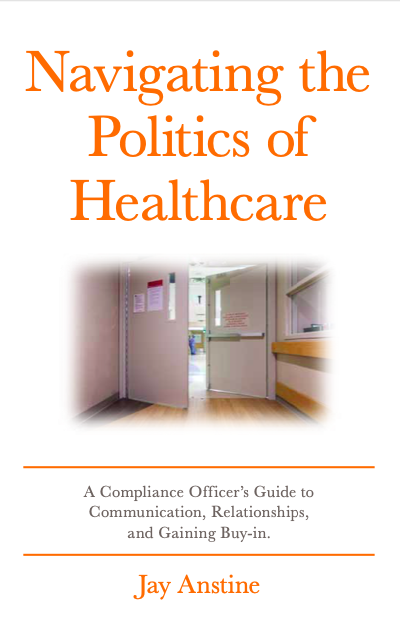In the world of a compliance officer, a sad reality is that with some exceptions, we don’t get to be the hero. One of those exceptions can be consulting to healthcare leaders on new service lines or proposed business deals. When you’re able to allow a healthcare leader to move forward in a manner that is both business friendly and compliant, it feels as if you drained a three pointer at the buzzer in overtime.
OK, that might be a slight exaggeration, but the point is, unlike conducting an audit, these are moments when your leaders will celebrate you. Since these times infrequently occur due to our role as compliance officers, you should embrace them for what they are: an opportunity to demonstrate to a leader you are a business partner and not an obstacle.
When you are consulting to your healthcare leaders, the most professional way to approach this work is to lead with a mindset of “maybe” instead of “no!” when they come to you.
Leading with a Mindset of “Maybe” Instead of “No!”
Compliance questions are a world of gray because most regulations are intentionally written by lawyers to fit changing circumstances over time. Think about HIPAA. For those of us old enough to remember, when HIPAA was signed into law in 1996, there was barely an internet and email. Few of us had cell phones. There was no texting. No social media. No smartphones. If you wanted to coordinate a time and place to meet up with your buddies, you called each other ahead of time. If they answered, they showed up; if they didn’t, well, they missed out. The point is, even though these forms of communication either didn’t exist or barely existed in 1996, we still have to apply them to HIPAA in today’s modern communication world.
When it comes to the language of healthcare regulations, there will be circumstances when it is clear you cannot engage in certain conduct. There may also be times where workable solutions do exist, ones that do not jeopardize compliance. Finding these workable solutions is the sweet spot you should be seeking when consulting to healthcare leaders.
(Note: This is where thinking like a healthcare leader and understanding their point-of-view will help you).
Fallout from the “No!” Mindset
If you go into a discussion with a leader about a new business venture with a mindset of “No!”, you’re inhibiting your ability of finding a workable solution. Over time, it can have disastrous consequences for you and the compliance program. I say that because I have seen it happen with other compliance officers over the years. They become known in the organization as the person who only says “no.”
And then what happens?
Their leaders go around them to find someone else who will work with them, or worse, they avoid the compliance officer and do what they want anyway. The end result is a mess that could’ve been avoided had the compliance officer not taken a standoffish position right out of the gate.
Pulling it All Together
An effective compliance program takes a village of committed folks throughout all levels of the organization in order to pull that off. That means having your healthcare leaders coming to you proactively instead of reactively. If that is the type of compliance program you want to foster, then you have to encourage them to come to you. Leading with a mindset of “Maybe” instead of “No!” does just that. It sends a message to the leader that you are keeping an open mind and willing to put in the time and effort to try and help them.
Over time, this approach encourages them to come to you on the front end for advice rather than avoiding you and creating a mess on the back end. There will be times when “no” truly is the answer, but saying no should be the last word out of your mouth. Not the first.
_____________________________________________________________________________
Are you interested in more content like this?
Check out my new book, Navigating the Politics of Healthcare: A Compliance Officer’s Guide to Communication, Relationships, and Gaining Buy-in. It’s now available at Amazon, Barnes & Noble, and most other major book retailers.


